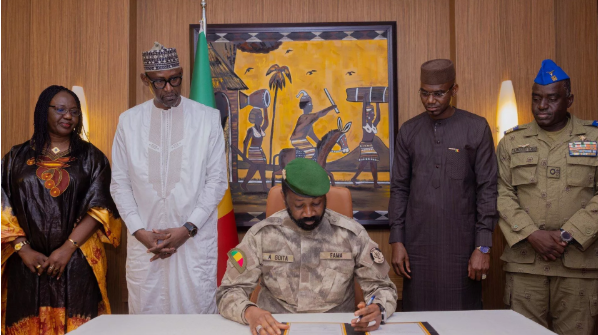
In a bold move to combat escalating extremist violence and regional instability, an alliance of Sahel states has announced plans to form a 5,000-troop military unit. The force, which will be made up of soldiers from Burkina Faso, Mali, Mauritania, and Niger, aims to bolster regional security and enhance coordination in the fight against jihadist groups and criminal networks operating in the Sahel.
The decision was made following a summit of leaders from the four countries, who have been grappling with rising insurgency and violence from armed groups linked to al-Qaeda and the Islamic State. The proposed military unit is expected to serve as a rapid-response force capable of deploying quickly to key areas under threat, conducting counterterrorism operations, and providing vital security support to civilians in high-risk zones.
The new military unit represents a significant step towards closer military cooperation among Sahelian nations, which have been increasingly targeted by militant groups operating across the vast and porous borders of the region. The alliance aims to create a unified and agile force that can better address the complex security challenges posed by armed groups, including terrorist attacks, kidnappings, and human trafficking. The Sahel region has faced growing insecurity for years, and it’s clear that no single country can face these challenges alone, said President Ibrahim Boubacar Keita of Mali, who spoke at the summit. This joint military force will help us fight terrorism, protect our borders, and ensure the safety of our citizens.
The decision to form a regional military force has garnered significant support, with many experts pointing out that a collaborative approach will enhance the effectiveness of counterterrorism operations and reduce the burden on individual countries, each of which is already dealing with significant internal security issues.
The Sahel region has become a focal point of extremist violence in recent years, with militant groups exploiting instability and weak governance to expand their influence. The presence of armed groups has disrupted local economies, displaced thousands of civilians, and created a humanitarian crisis across the region.
According to the United Nations, over 20,000 people were killed in attacks linked to insurgents across the Sahel in 2024 alone, with many others forced into refugee camps or makeshift shelters. Human rights groups have also raised concerns about the increasing use of children and women by extremist groups, further complicating efforts to restore peace and stability.
The creation of the 5,000-troop military unit is expected to have an immediate impact on counterterrorism efforts, as the force will be trained specifically to conduct targeted strikes against militant cells, secure key infrastructure, and assist local security forces in the pursuit of armed groups. Additionally, the force will work closely with international partners, including France and the United States, who have been involved in counterterrorism operations in the region.
Despite the optimism surrounding the formation of the new military unit, experts caution that the alliance faces numerous challenges in ensuring the success of this ambitious security initiative. One of the key challenges is the coordination of military strategies across the four countries, which have different security needs and internal dynamics. For example, Mali and Burkina Faso have been more severely affected by jihadist attacks than Mauritania and Niger, and there are concerns about how resources and personnel will be allocated equitably among the member states.
There is a risk that this military force may be stretched thin or unable to effectively operate in all of the affected areas, said regional security expert Dr. Fatoumata Ba. Coordinating military operations and sharing intelligence across different political environments and command structures will require careful planning and ongoing communication.
Another concern is the level of support from local populations. Many civilians in the Sahel region have grown disillusioned with the effectiveness of both local governments and foreign military interventions, which have had mixed results in combating extremist violence. Ensuring the legitimacy and support of local communities will be crucial for the success of the military unit, as it will need to win the trust of civilians to effectively combat insurgents while avoiding alienation or exacerbating local grievances.
The new military initiative has already received backing from the African Union (AU) and the Economic Community of West African States (ECOWAS), with both organizations pledging technical and financial support for the unit. Additionally, France, which has had a significant military presence in the region through Operation Barkhane, has expressed its commitment to supporting the new force.
The Sahel is a region of strategic importance, and we remain committed to supporting our regional partners in their efforts to combat terrorism and restore peace, said French President Emmanuel Macron. We will continue to work with the Sahel states and the international community to ensure the success of this joint military force. The formation of this 5,000-troop military unit could mark a turning point in the Sahel’s battle against terrorism and organized crime, provided that the force is able to overcome internal and external challenges. If successful, the alliance’s efforts may serve as a model for other regions in Africa that are facing similar security threats.
As the Sahel region continues to grapple with growing instability, the world watches closely to see if this new initiative can restore peace and security to a region that has long been plagued by violence and unrest.

